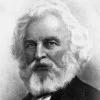We start out determined to see that our children are good; we soon settle for having them nice.
Mignon McLaughlin (1913-1983) American journalist and author
The Neurotic’s Notebook, ch. 2 (1963)
(Source)
Quotations about:
behavior
Note not all quotations have been tagged, so Search may find additional quotes on this topic.
The epic poet did not judge his heroes by the result: Heroes won and lost battles in a manner that was totally independent of their own valor; their fate depended upon totally external forces, generally the explicit agency of the scheming gods (not devoid of nepotism(. Heroes are heroes because they are heroic in behavior, not because they won or loss.
A main fact in the history of manners is the wonderful expressiveness of the human body. If it were made of glass, or of air, and the thoughts were written on steel tablets within, it could not publish more truly its meaning than now. Wise men read very sharply all your private history in your look and gait and behavior. The whole economy of nature is bent on expression. The telltale body is all tongues.
Ralph Waldo Emerson (1803-1882) American essayist, lecturer, poet
Essay (1860), “Behavior,” The Conduct of Life, ch. 5
(Source)
Based on a course of lectures by that name first delivered in Pittsburg (1851-03).
When a society abandons its ideals just because most people can’t live up to them, behavior gets very ugly indeed.
So be wise, because the world needs more wisdom, and if you cannot be wise, pretend to be someone who is wise, and then just behave like they would.
Neil Gaiman (b. 1960) British author, screenwriter, fabulist
Speech (2012-05-17), Commencement, University of the Arts, Philadelphia [19:05]
(Source)
DEAR MISS MANNERS: Is it ever possible to be too polite?
GENTLE READER: When politeness is used to show up other people, it is reclassified as rudeness. Thus it is technically impossible to be too polite.
Judith Martin (b. 1938) American author, journalist, etiquette expert [a.k.a. Miss Manners]
Miss Manners Rescues Civilization, ch. 13 “Tradition Moves Ahead” (1996)
(Source)
"Miss Manners's Parting Shot." Concluding words of the book.
If you are brave too often, people will come to expect it of you.
Mignon McLaughlin (1913-1983) American journalist and author
The Second Neurotic’s Notebook, ch. 5 (1966)
(Source)
The dinner table is the center for the teaching and practicing not just of table manners but of conversation, consideration, tolerance, family feeling, and just about all the other accomplishments of polite society except the minuet.
Judith Martin (b. 1938) American author, journalist, etiquette expert [a.k.a. Miss Manners]
Miss Manners’ Guide for the Turn-of-the-Millennium, Part 2 “Home Life,” “Parents and Children” (1989)
(Source)
The challenge of manners is not so much to be nice to someone whose favor and/or person you covet (although more people need to be reminded of that necessity than one would suppose) as to be exposed to the bad manners of others without imitating them.
There was a little girl,
Who had a little curl,
Right in the middle of her forehead.
When she was good,
She was very good indeed,
But when she was bad she was horrid.Henry Wadsworth Longfellow (1807-1882) American poet
“There Was a Little Girl,” st. 1 (c. 1850)
(Source)
Often printed with "She was very, very good" for the penultimate line, and sometimes with "And when she was bad" (e.g.).
His son, Ernest, says that Longfellow composed the rhyme while walking back and forth with his infant second daughter (Alice Mary, b. 1850). There is some dispute about this, as well as his authorship of the other stanzas of the poem.
Teacup formality is a part of etiquette, but an infinitesimal part. How about fast-food informality? That is as much a part of etiquette as the teacup. It is all of our behavior and not simply the formal occasion behavior. And, in fact, the more informal the circumstances, usually the more you need etiquette.
Judith Martin (b. 1938) American author, journalist, etiquette expert [a.k.a. Miss Manners]
“Polite Company,” interview by Hara Estroff Marano, Psychology Today (1998-03)
(Source)
Etiquette is about all of human social behavior. Behavior is regulated by law when etiquette breaks down or when the stakes are high — violations of life, limb, property, and so on. Barring that, etiquette is a little social contract we make that we well restrain some of our more provocative impulses in return for living more or less harmoniously in a community.
Judith Martin (b. 1938) American author, journalist, etiquette expert [a.k.a. Miss Manners]
“Polite Company,” interview by Hara Estroff Marano, Psychology Today (1998-03)
(Source)
Behavior is a mirror in which everyone displays his own image.
[Das Betragen ist ein Spiegel in welchem jeder sein Bild zeigt.]
Johann Wolfgang von Goethe (1749-1832) German poet, statesman, scientist
Elective Affinities [Die Wahlverwandtschaften], Part 2, ch. 5, “From Ottilie’s Journal [Aus Ottiliens Tagebuche]” (1809) [tr. Hollingdale (1971)]
(Source)
(Source (German)). Alternate translation:Behavior is a mirror in which every one shows his image.
[Niles ed. (1872)]
You ought to regulate your manner of behaviour towards others, not according to your own humour, but agreeably to the pleasure and inclination of those with whom you converse.
[Il che acciò che tu più agevolmente apprenda di fare, dèi sapere che a te convien temperare et ordinare i tuoi modi non secondo il tuo arbitrio, ma secondo il piacer di coloro co’ quali tu usi, et a quello indirizzargli.]
Giovanni della Casa (1503-1556) Florentine poet, author, diplomat, bishop
Galateo: Or, A Treatise on Politeness and Delicacy of Manners [Il Galateo overo de’ costumi], ch. 2 (1558) [tr. Graves (1774)]
(Source)
(Source (Italian)). Alternate translations:It behooves thee, to frame and order thy maners and doings, not according to thine owne minde and fashion: but to please those, with whome thou livest, and after that sort direct thy doings.
[tr. Peterson (1576)]You must know that it will be to your advantage to temper and adapt your manners not according to your own choices but according to the pleasure of those with whom you are dealing and act accordingly.
[tr. Einsenbichler/Bartlett (1986)]
I’d be more willing to accept religion, even though I don’t believe in it, if I thought it made people nicer to each other, but I don’t think it does.
Andy Rooney (1919-2011) American journalist, commentator, author
Sincerely, Andy Rooney, Part 15 “Faith in Reason” (1999)
(Source)
From a 1989 letter he wrote to his children about religion.
Businesses have changed when the public came to expect and require different behavior, to reward businesses for behavior that the public wanted, and to make things difficult for businesses practising behaviors that the public didn’t want. I predict that in the future, just as in the past, changes in public attitudes will be essential for changes in businesses’ environmental practices.
Jared Diamond (b. 1937) American geographer, historian, ornithologist, author
Collapse: How Societies Choose to Fail or Succeed, “Big businesses and the environment” (2005)
(Source)
It would be difficult for anyone with normal powers of observation to believe that there is a link between having money and behaving well.
Judith Martin (b. 1938) American author, journalist, etiquette expert [a.k.a. Miss Manners]
Twitter (2022-01-16)
(Source)
Precisely in trifles, wherein a man is off his guard, does he show his character, and then we are often able at our leisure to observe in small actions or mere mannerisms the boundless egoism which has not the slightest regard for others and in matters of importance does not afterwards deny itself, although it is disguised. We should never miss such an opportunity. If in the petty affairs and circumstances of everyday life, in the things to which the de minimis lex non curat applies, a man acts inconsiderately, seeking merely his own advantage or convenience to the disadvantage of others; if he appropriates that which exists for everybody; then we may be sure that there is no justice in his heart, but that he would be a scoundrel even on a large scale if his hands were not tied by law and authority; we should not trust him across our threshold. Indeed, whoever boldly breaks the laws of his own circle will also break those of the State whenever he can do so without risk.
[Gerade in Kleinigkeiten, als bei welchen der Mensch sich nicht zusammennimmt, zeigt er seinen Charakter, und da kann man oft, an geringfügigen Handlungen, an bloßen Manieren, den gränzenlosen, nicht die mindeste Rücksicht auf Andere kennenden Egoismus bequem beobachten, der sich nachher im Großen nicht verleugnet, wiewohl verlarvt. Und man versäume solche Gelegenheit nicht. Wenn Einer in dem kleinen täglichen Vorgängen und Verhältnissen des Lebens, in den Dingen, von welchen das de minimis lex non curat gilt, rücksichtslos verfährt, bloß seinen Vertheil oder seine Bequemlichkeit, zum Nachtheil Andere, sucht; wenn er sich angeignet was für Alle da ist u. s. w.; da sei man überzeugt, daß in seinem Herzen keine Gerechtigkeit wohnt, sondern er auch im Großen ein Schuft sein wird, sobald das Gesetz und die Gewalt ihm nicht die Hände binden, und traue ihm nicht über die Schwelle. Ja, wer ohne Scheu die Gesetze seines Klubs bricht, wird auch die des Staates brechen, sobald er es ohne Gefahr kann.]
Arthur Schopenhauer (1788-1860) German philosopher
Parerga and Paralipomena, Vol. 1, “Aphorisms on the Wisdom of Life [Aphorismen zur Lebensweisheit],” ch. 4 “Counsels and Maxims [Paränesen und Maximen],” § 3.29 (1851) [tr. Payne (1974)]
(Source)
The Latin means, "The law is not concerned with trifles." (Source (German)) Alternate translations:A man shows his character just in the way in which he deals with trifles, -- for then he is off his guard. This will often afford a good opportunity of observing the boundless egoism of man's nature, and his total lack of consideration for others; and if these defects show themselves in small things, or merely in his general demeanor, you will find that they also underlie his action in matters of importance, although he may disguise the fact. This is an opportunity which should not be missed. If in the little affairs of every day, -- the trifles of life, those matters to which the rule de minimis non applies, -- a man is inconsiderate and seeks only what is advantageous or convenient to himself, to the prejudice of others' rights; if he appropriates to himself that which belongs to all alike, you may be sure there is no justice in his heart, and that he would be a scoundrel on a wholesale scale, only that law and compulsion bind his hands. Do not trust him beyond your door. He who is not afraid to break the laws of his own private circle, will break those of the State when he can do so with impunity.
[tr. Saunders (1890)]Men best show their character in trifles, where they are not on their guard. It is in insignificant matters, and in the simplest habits, that we often see the boundless egotism which pays no regard to the feeling of others, and denies nothing to itself.
[In Tryon Edwards, A Dictionary of Thoughts, "Character" (1891); this is the version quoted most often.]
At the Conclusion of my last Paper, I asserted that the Summary of Good Breeding was no other than that comprehensive and exalted Rule, which the greatest Authority hath told is is the Sum Total of all Religion and all Morality.
Here, however, my Readers will be pleased to observe that the subject Matter of good Breeding being only what is called Behavior, it is this only to which we are to apply it on the present Occasion. Perhaps therefore we shall be better understood if we vary the Word, and read it thus: Behave unto all Men, as you would they should be behave unto you.
This will most certainly oblige us to treat all Mankind with the utmost Civility and Respect, there being nothing which we desire more than to be treated so by them.
Henry Fielding (1707-1754) English novelist, dramatist, satirist
Covent Garden Journal, #56 (25 Jul 1752)
(Source)
The question was once put to him, how we ought to behave to our friends; and the answer he gave was, “As we should wish our friends to behave to us.”
[ἐρωτηθεὶς πῶς ἂν τοῖς φίλοις προσφεροίμεθα, ἔφη, “ὡς ἂν εὐξαίμεθα αὐτοὺς ἡμῖν προσφέρεσθαι.”]
Aristotle (384-322 BC) Greek philosopher
Attributed in Diogenes Laërtius, Lives and Opinions of Eminent Philosophers [Vitae Philosophorum], Book 5, sec. 11 [tr. Yonge (1853)]
(Source)
(Source (Greek)). Alternate translations:To the question how we should behave to friends, he answered, "As we should wish them to behave to us."
[tr. Hicks (1925), sec. 21]When asked how we should act towards friends, he said “as we would pray they act towards us!”
[tr. @sentantiq (2016)]When asked how we should behave to friends, he said, "As we would wish them to behave to us."
[tr. Mensch (2018)]
We can’t function as a society unless we have norms of how to behave. You can’t pass enough laws to take care of every human interaction.
Jerry Springer (b. 1944) Anglo-American broadcaster, actor, producer, politician
Interview by Stephanie Ruhle, MSNBC, @1:12 (1 Nov 2019)
(Source)
Nothing predicts future behavior as much as past impunity.
Darius Rejali (b. c. 1959) Iranian-American academic, political scientist
In Jane Mayer, “Torture and the Truth,” New Yorker (14 Dec 2014)
(Source)
Alcohol is not likely to bring out any impulse that is not already potential in a personality, nor is it likely to cast behavior into patterns for which there is not already significant subsurface predilection. The alcohol merely facilitates expression by narcotizing inhibitory processes. […] The oil which lubricates the engine of an automobile neither furnishes the energy for its progress nor directs it.
From the simple observation that mental illness is marked by odd behavior flows a host of problems. For nothing seems clearer than that we are responsible for our behavior; from there, it seems only a small step to the conclusion that a disease characterized by strange behavior must be a disease under our control. And so we appeal to willpower in the devout belief that we can think our way to mental health. We advise the victim of depression to look on the bright side; we tell the person in the midst of a sky-high manic episode to take a deep breath and calm down. When it comes to mental illness, we are all Christian Scientists.
No one has ever been known to decline to serve on a committee to investigate radicals on the ground that so much exposure to their doctrines would weaken his patriotism, nor on a vice commission on the ground that it would impair his morals. Anything may happen inside the censor, but what counts is that in his outward appearances after his ordeal by temptation he is more than ever a paragon of the conforming virtues. Perhaps his appetites are satisfied by an inverted indulgence, but to a clear-sighted conservative that does not really matter. The conservative is not interested in innocent thoughts. He is interested in loyal behavior.
Walter Lippmann (1889-1974) American journalist and author
Men of Destiny, ch. 8 “The Nature of the Battle Over Censorship,” sec. 2 (1927)
(Source)
If conversion to Christianity makes no improvements in a man’s outward actions — if he continues to be just as snobbish or spiteful or envious or ambitious as he was before — then I think we must suspect that his “conversion” was largely imaginary; and after one’s original conversion, every time one thinks one has made an advance, that is the test to apply. Fine feelings, new insights, greater interest in “religion” mean nothing unless they make our actual behavior better.
C. S. Lewis (1898-1963) English writer, literary scholar, lay theologian [Clive Staples Lewis]
Mere Christianity, ch. 10 “Nice People or New Men” (1952)
(Source)
Marriage is not a noun, it’s a verb. It’s not something you have, like a house or a car. It is not a piece of paper that proves you are husband and wife. Marriage is a behavior. It is a choice you make over and over again, reflected in the way you treat your partner every day.
Barbara De Angelis (b. 1951) American relationship consultant, lecturer, author
Ask Barbara: The 100 Most-Asked Questions About Love, Sex, and Relationships (1997)
(Source)
Manners are of more importance than laws. Upon them, in a great measure, the laws depend. The law touches us but here and there, and now and then. Manners are what vex or soothe, corrupt or purify, exalt or debase, barbarize or refine us, but a constant, steady, uniform, insensible operation, like that of the air we breathe in. They give their whole form and color to our lives. According to their quality, they aid morals, they supply them, or they totally destroy them.
Edmund Burke (1729-1797) Anglo-Irish statesman, orator, philosopher
Letters on a Regicide Peace, Letter 1 (1796)
(Source)
For behavior, men learn it, as they take diseases, one of another.
Ralph Waldo Emerson (1803-1882) American essayist, lecturer, poet
“Solitude and Society,” Atlantic Monthly (1857-12)
Paraphrase of Shakespeare, King Henry IV, Part 2, Act 5, sc. 1: "It is certain that either wife bearing or ignorant carriage is caught, as men take diseases, one of another: therefore let men take heed of their company." Sometimes misattributed to Francis Bacon.
As I have often told you, politeness and good beeding are absolutely necessary to adorn any, or all other good qualities or talents. Without them, no knowledge, no perfection whatever, is seen in its best light. The scholar, without good breeding, is a pedant; the philosopher, a cynic; the soldier, a brute; and every man disagreeable.
Lord Chesterfield (1694-1773) English statesman, wit [Philip Dormer Stanhope]
Letter to his son, #128 (9 Oct 1747)
(Source)
Let’s not forget that the little emotions are the great captains of our lives, and we obey them without realizing it.
Keep your thoughts positive because your thoughts become your words.
Keep your words positive because your words become your behavior.
Keep your behavior positive because your behavior becomes your habits.
Keep your habits positive because your habits become your values.
Keep your values positive because your values become your destiny.
There is (usually) no crime in performing a jerk maneuver, or acting like a jerk. Everyone can, and has, acted like a jerk from time to time. It’s a regrettable but natural part of the human experience. But most people have the good sense to understand that acting like a jerk should not be a lifestyle choice, and that if you make it one, people will respond to you based on your choices.
John Scalzi (b. 1969) American writer
“Being a Jerk About the Hugos: Not as Effective a Strategy as You Might Think”, Whatever (blog) (24 Aug 2015)
(Source)
The objection to Puritans is not that they try to make us think as they do, but that they try to make us do as they think.
H. L. Mencken (1880-1956) American writer and journalist [Henry Lewis Mencken]
A Little Book in C Major, ch. 5, § 22 (1916)
(Source)
There is hardly any bodily blemish which a winning behaviour will not conceal, or make tolerable; and there is no external grace which ill-nature or affectation will not deform.
James Burgh (1714-1775) British politician and writer
The Dignity of Human Nature, Sec. 5 “Miscellaneous Thoughts on Prudence in Conversation” (1754)
(Source)
If your flirting strategy is indistinguishable from harassment, it’s not everyone else that’s the problem.
John Scalzi (b. 1969) American writer
“Convention Harassment Policy Follow-Up,” blog entry (5 Jul 2013)
(Source)
All luxury corrupts either the morals or the taste.
[Tout luxe corrompt ou les mœurs ou le goût.]
Joseph Joubert (1754-1824) French moralist, philosopher, essayist, poet
Pensées [Thoughts], ch. 16 “Des Mœurs publiques et privées; du Caractère des Nations [On Morality and the Character of Nations],” ¶ 38 (1850 ed.) [tr. Calvert (1866), ch. 12]
(Source)
(Source (French)). Alternate translations:All luxury corrupts either conduct or taste.
[tr. Lyttelton (1899), ch. 15, ¶ 15]Every form of extravagance corrupts either one's morals or one's taste.
[tr. Collins (1928), ch. 15]
What is character but the determination of incident? What is incident but the illustration of character?
Henry James (1843-1916) American writer
“The Art of Fiction,” Longman’s Magazine (4 Sep 1884)
(Source)
But indeed Conviction, were it never so excellent, is worthless till it convert itself into Conduct. Nay properly Conviction is not possible ill then.
Thomas Carlyle (1795-1881) Scottish essayist and historian
Sartor Resartus, Book 2, ch. 9 (1831)
(Source)
When Miss Manners observes people behaving rudely, she never steps in to correct them. She behaves politely to them, and then goes home and snickers about them afterward. That is what the well-bred person does.
Judith Martin (b. 1938) American author, journalist, etiquette expert [a.k.a. Miss Manners]
Miss Manners’ Guide to Excruciatingly Correct Behavior, Introduction (1983)
(Source)
HARRIS: Ordinarily, I don’t like to be around interesting people because it means I have to be interesting too.
SARA: Are you saying I’m interesting?
HARRIS: All I’m saying is that, when I’m around you, I find myself showing off, which is the idiot’s version of being interesting.
Steve Martin (b. 1945) American comedian, actor, writer, producer, musician
L. A. Story (1991)
(Source)









































